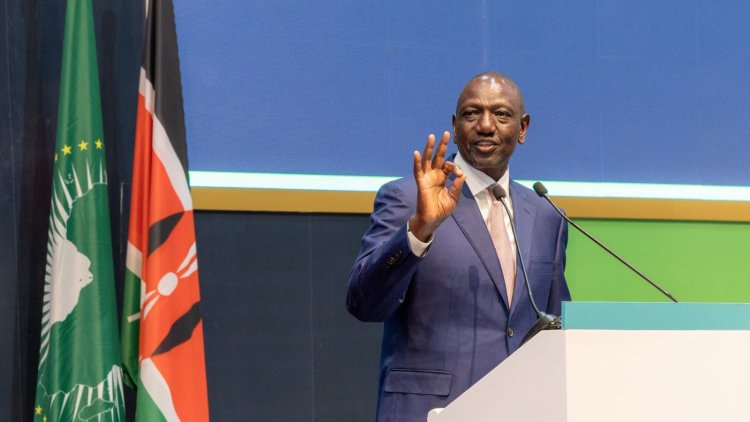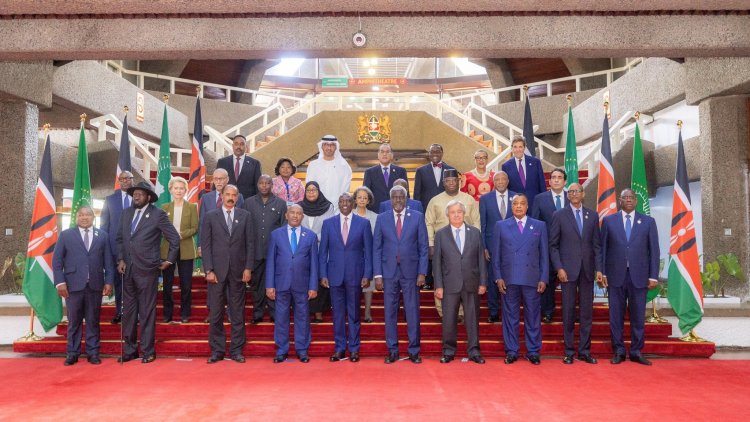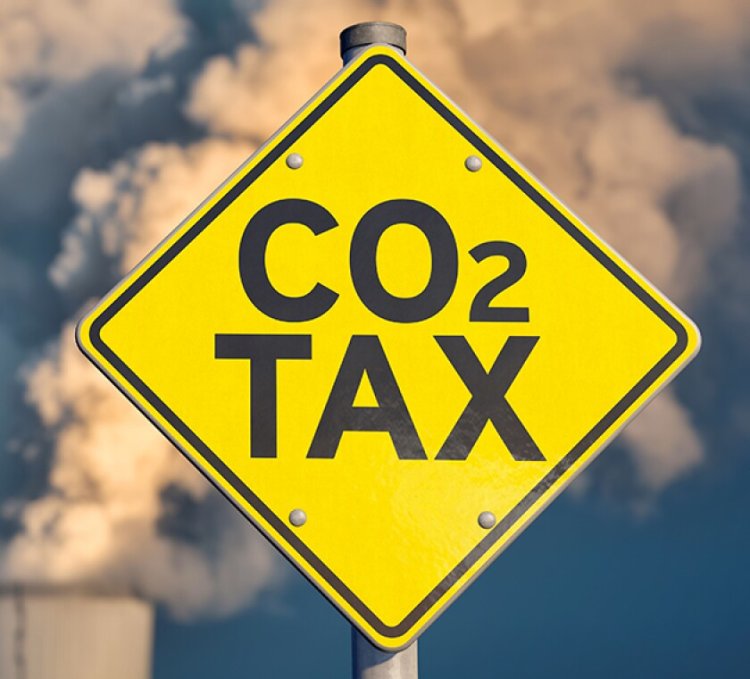Details Of New Tax Proposed By Ruto At Africa Climate Summit
The Head of State lamented that climate change was eroding the progress made by governments through the years and affecting countries' economic growth.

President William Ruto is proposing the introduction of a Carbon tax to deal with the adverse effects of climate change which he lamented forced world governments to divert resources not budgeted for to deal with calamities such as drought.
Speaking on Tuesday, September 5 on day two of the ongoing Africa Climate Summit (Heads of State Session) at the Kenyatta International Convention Centre (KICC) in Nairobi, the Head of State lamented that climate change was eroding the progress made by governments through the years and affecting countries' economic growth.
"Nevertheless, we have all, in our different ways, succeeded in making some progress over the years amid these extraordinary difficulties.
"The tragedy of climate change is that it is relentlessly eating away at this progress and, going by evidence based on scientific projections, its appetite to consume our GDP will grow in years to come. We are already losing between 5-15% of our GDP growth every year to the adverse impacts of climate change," Ruto complained.

President William Ruto takes a group photo with several Presidents as at least 16 heads of state are in attendance at the Africa Climate Summit on September 5, 2023. /PCS
According to the President, because of climate change, countries are forced to divert resources that are meant for economic growth into dealing with the effects of climate change.
In Kenya for instance, the government has been forced to bolster the school-feeding program from one and a half million children to four million children because of drought, which is a consequence of climate change, adding that two and a half million heads of livestock have been lost in the northern part of Kenya alone.
"Combined with Ethiopia, Somalia and Djibouti, we lost nine and a half million heads of livestock. So what did I have to do in Kenya?
"I have had to increase resources meant for school feeding from a million under school feeding we had to scale up this year to four million kids in school to be put under school feeding and we had to re-arrange the budget to provide for that. So when we say climate change is destroying our economies, we are not making statements. We are making statements of facts," Ruto defended.
As a means of preventing climate change from eating into public coffers already struggling to be funded due to a harsh economic environment, Ruto suggested the introduction of a carbon tax.
Through the carbon tax, he added, the government would be able to raise funds that would be channelled into dealing with the effects of climate change in the country.
"To be able to unlock the resources that we need, to be able to drive this new investment and financing opportunities, especially for green energy we believe it is time to have a conversation about Carbon tax. I said we need a conversation about Carbon tax.
"And I mean we need to have a conversation about Carbon tax. We believe it's among the ways that we can raise additional and adequate resources for us to finance our development," Ruto stated.
What is Carbon Tax?
A carbon tax is a type of penalty that businesses must pay for excessive greenhouse gas emissions. The tax is usually levied per ton of greenhouse gas emissions emitted.
It is paid by businesses and industries that produce carbon dioxide through their operations. The tax is designed to encourage such businesses to reduce their output of greenhouse gases and carbon dioxide, a colourless and odourless incombustible gas, into the atmosphere.
According to Investopedia, carbon taxes have been implemented in 35 countries to date. The United States however did not enact a carbon tax although a number of proposals for one have been submitted to the U.S. Congress.
A carbon tax is also referred to as a form of carbon pricing on greenhouse gas emissions where a fixed price is set by the government for carbon emissions in certain sectors. The price is passed through from businesses to consumers.
By increasing the cost of greenhouse emissions, governments hope to curb consumption, reduce the demand for fossil fuels, and push more companies toward creating environmentally friendly substitutes.







